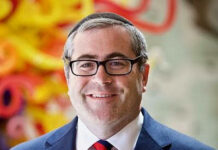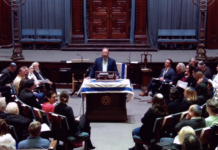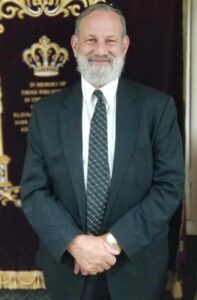
The first sentence of the Wikipedia page about Tu B’Av may sum it up best. It says, “Tu B’Av is a minor Jewish holiday.”
In old Jerusalem, it was a day to mark the start of the grape harvest. It was also an occasion on which young, unmarried girls “dressed in white garments and went out to dance in the vineyards.” (From Wikipedia but confirmed by several rabbis.)
The holiday came to be associated with love. Some even call it the Jewish Valentine’s Day. This year, it was celebrated on Aug. 2.
In secular American life, Valentine’s Day is also a minor holiday. But it does have its purpose: reminding you of what life is about. Tu B’Av can play a similar role on the Jewish calendar, according to local rabbis from the four major denominations.
We asked one from each major branch, Orthodox, Conservative, Reform and Reconstructionist, to interpret the holiday for their modern congregations.
Orthodox: Rabbi Isaac Leizerowski of Congregation Beth Midrash HaRav B’Nai Jacob (Northeast Philadelphia)
Leizerowski believes the holiday is about empathy for your fellow Jews. When the women used to go out and dance in their white garments, the more fortunate would lend clothes to the less fortunate.
“That’s a bigger picture than the agricultural aspect,” he said.
The rabbis of old did not intentionally place Tu B’Av after Tisha B’Av, the Jewish holiday that remembers destruction and tragedy. But the merriest of holidays does happen to fall after the gloomiest one. There’s a lesson in that, according to Leizerowski.
“The ninth of Av was a day when we highlight the destruction of the Temple and the reason for it: unbridled hatred for one another,” he explained. “Tu B’Av comes quickly, and you look at things differently. Now you have unbridled love.”
“Good and bad are never that far apart. Tu B’Av is a message,” the rabbi concluded.
Conservative: Rabbi Abe Friedman of Temple Beth Zion-Beth Israel (Center City)
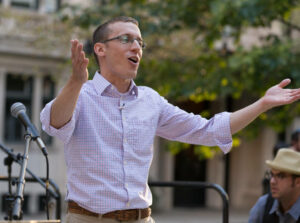
Friedman agrees with his Orthodox contemporary…to a degree. But instead of focusing on the pendulum between good and bad, he prefers to see Tu B’Av as a rebirth after tragedy. The rabbi calls that “a profound and recurring Jewish message.”
Tu B’Av’s emphasis on love is also deeper than the connection between two people, according to Friedman. It’s about building for the future.
“The Talmud describes a singles event where unmarried young people would go out into the middle of the field and pair off. But I do think there was a sense that these marriages were not about the individual personal fulfillment of one individual or couple,” he explained. “It was about the coming together of these families and establishing this foundation for the future and taking the traditions that are so important to us and giving them to another generation.”
Jewish history is full of tragedies. But a part of the reason that it endures is because of this belief in the future.
“I don’t see how Jewish people continue to exist in our day without a belief that the future is worth it,” Friedman said.
Reform: Rabbi Charles Briskin of Shir Ami (Newtown)
In recent months, Briskin has thought about Tu B’Av even more than usual. That’s because he’s been trying to make sense of the judicial reform debate in Israel.
Israel Prime Minister Benjamin Netanyahu’s government recently passed a law that would prevent Israel’s Supreme Court from using the “reasonableness” doctrine to overturn laws. “Reasonableness” states that lawmakers must consider every side of an issue before voting on legislation. The effort is sparking protests from hundreds of thousands of Israelis.
In a moment when Jews are in conflict, Tu B’Av can remind them to come back together, Briskin argues.
“Love your neighbor as yourself,” the rabbi said. “It provides a different focal point for us moving forward.”
Reconstructionist: Rabbi Alex Weissman of the Reconstructionist Rabbinical College (Wyncote)
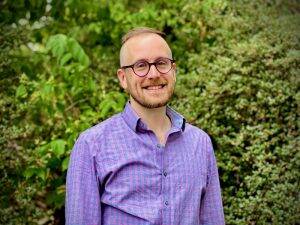
Weissman appreciates Tu B’Av’s emphasis on connection. But he believes that in these modern, isolated times, Jews should use the holiday to focus on connections in general.
“We need to make a concerted effort to build relationships,” he said. “We’re not in a moment where relationships form organically like they once did.”
“We should encourage people to sit down and have coffee with each other. Get to know people who go to your shul or who live on your block,” Weissman added. “Dedicate real time to getting to know somebody. Have a friend date.”



